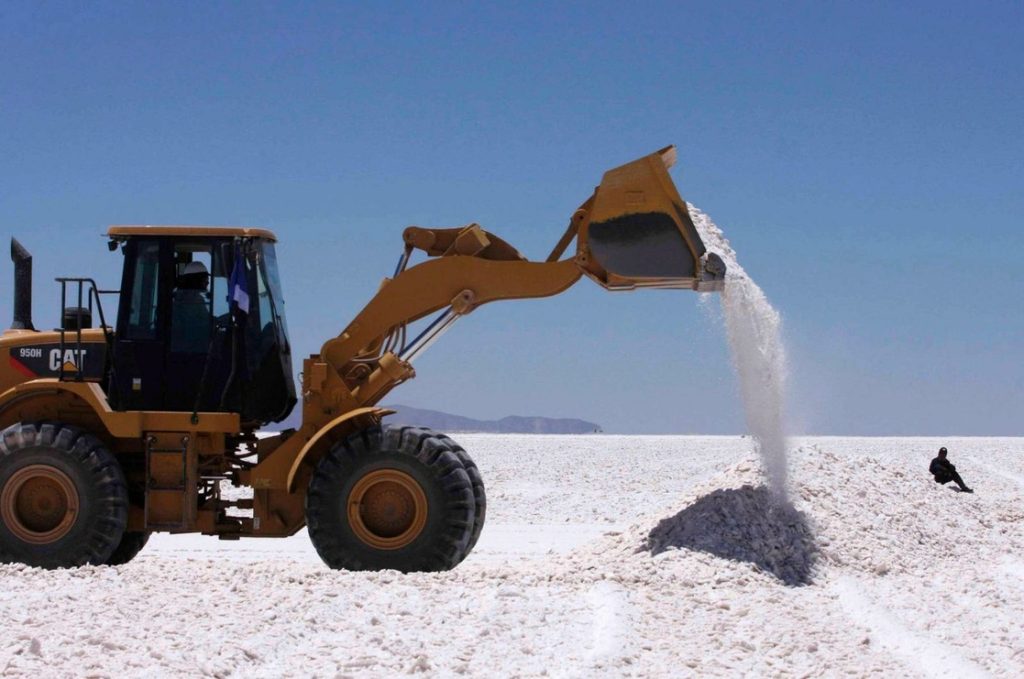Mexico City. The concession to exploit the largest lithium deposit in Mexico, located in the state of Sonora, was granted during the 100-year government of Felipe Calderon. It was received by an individual in 2010 and later sold in 2013, already under the management of Enrique Peña Nieto, to Bacanora Lithium, according to official information.
After the approval of the mining law last week, which retains ownership of this strategic resource for the state, the door was opened for a review, in this case, of a Chinese company that has rights to exploit it, according to official data. .
The largest lithium deposit in Mexico known to date and classified as potentially containing the largest mineral deposits in the world, will be exploited by foreign companies until 2115. However, President Andres Manuel Lopez Obrador has stated that by agreeing to the reform on the mining law, the concessions will be reviewed. provided to individuals.
Official data show that the Sonora Lithium project, affiliated with the British Bacanora Lithium and soon the Chinese Ganfeng Lithium Company, has seven mining concessions in the Bacadéhuachi municipality, which covers an area of about 8000 hectares. Most of these licenses are valid for 50 years, which means they will expire in 2065.
However, the mining law states that any concession can be extended for another similar period, which means that if requested, the exploitation of this deposit can be controlled by the Chinese company or some other company paying for it, given that the concessions are until 2115.
However, this will not be enough time to finish extracting the lithium that the Sonoran deposits supposedly contain, because according to a feasibility study distributed among its investors, Ganfeng Lithium estimates that the lithium carbonate resources in that mine are 8.8 million tons, so it will take 250 years to completely deplete them. .
More than expected
This number exceeds the figure disclosed by Mining Technology in 2019, which declared the Sonora deposit to be the world’s largest lithium deposit, revealing that it contained 243 million tons of proven and probable reserves, which contained 4.5 million lithium carbonate. A mineral that can really be used in its marketing.
Estimates from Bacanora Lithium (the current owner of the deposit), say its Sonora plant will have the capacity initially to process about 1.1 million tons of ore per year, reaching 2.2 million in a second phase. This will produce 17,500 tons of lithium carbonate per year in the first phase (second half of 2024) and 35,000 tons per year (no date specified).
Several specialists and organizations such as the Mexican Chamber of Mining have pointed out the difficulties of the project, as the lithium contained in the deposits is in the mud and at present cannot be extracted in a viable manner; However, Ganfeng noted that the project in Mexico is its most important project and has the ability to produce ore in a short time at low cost.
Violetta Nunez, a researcher at the Metropolitan Autonomous University, confirmed that the above gives the impression that the said company already has the necessary technology, or is close to it, and this may be the reason behind its decision to enter Mexico.
The entry of this Asian company is due to its calculations about the lithium wealth in Mexico. From the Sonora Lithium project alone, Ganfeng points out that it is one of the largest lithium resource projects in the world. Which shows the great potential of the country, although of course one must add the various circumstances that allowed intensive extraction in Mexico, including the current mining law, which gives absolute power to mining companies.”







More Stories
Nicaragua picks up and delivers to El Salvador four subjects circulated by Interpol
UN experts have warned of serious human rights violations in the context of the presidential elections scheduled for July 28 in Venezuela.
The Organization of American States deploys observers for the US elections